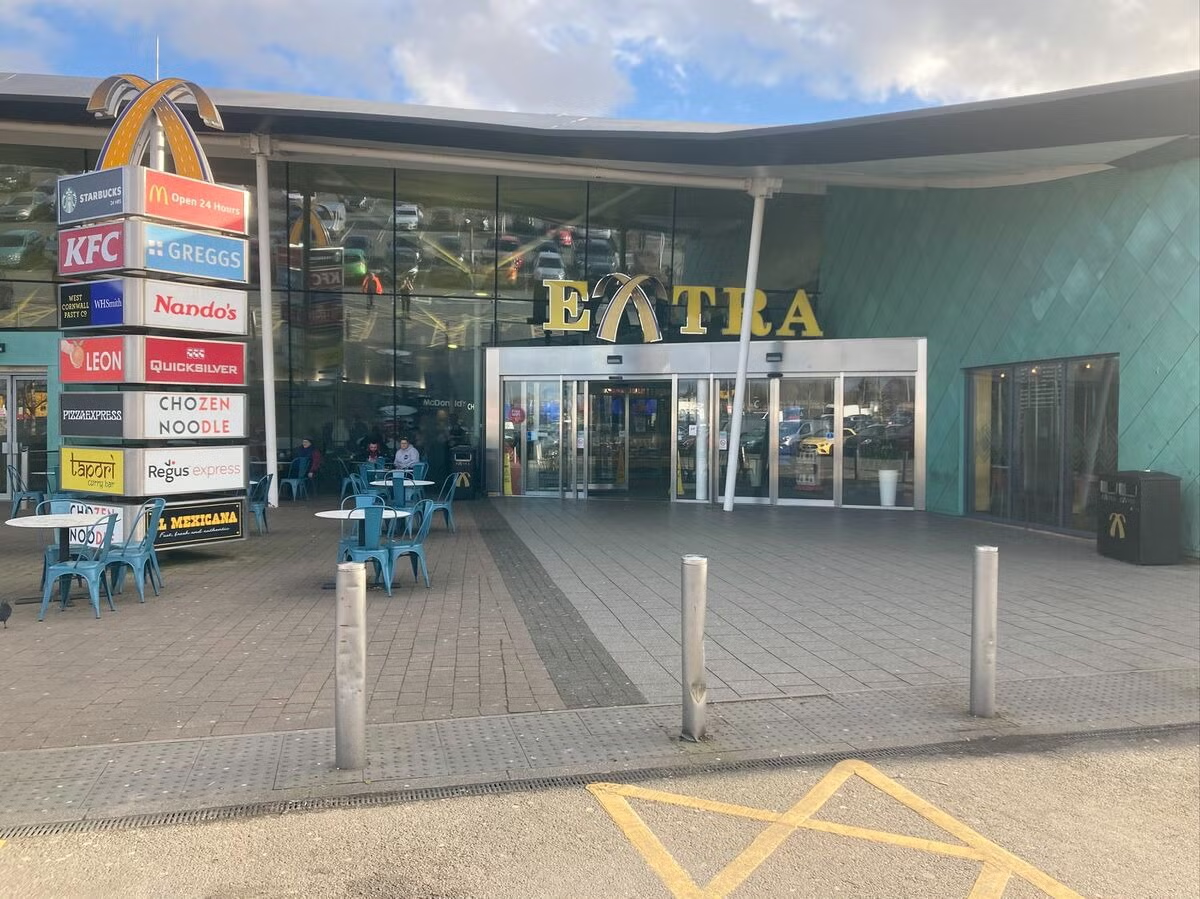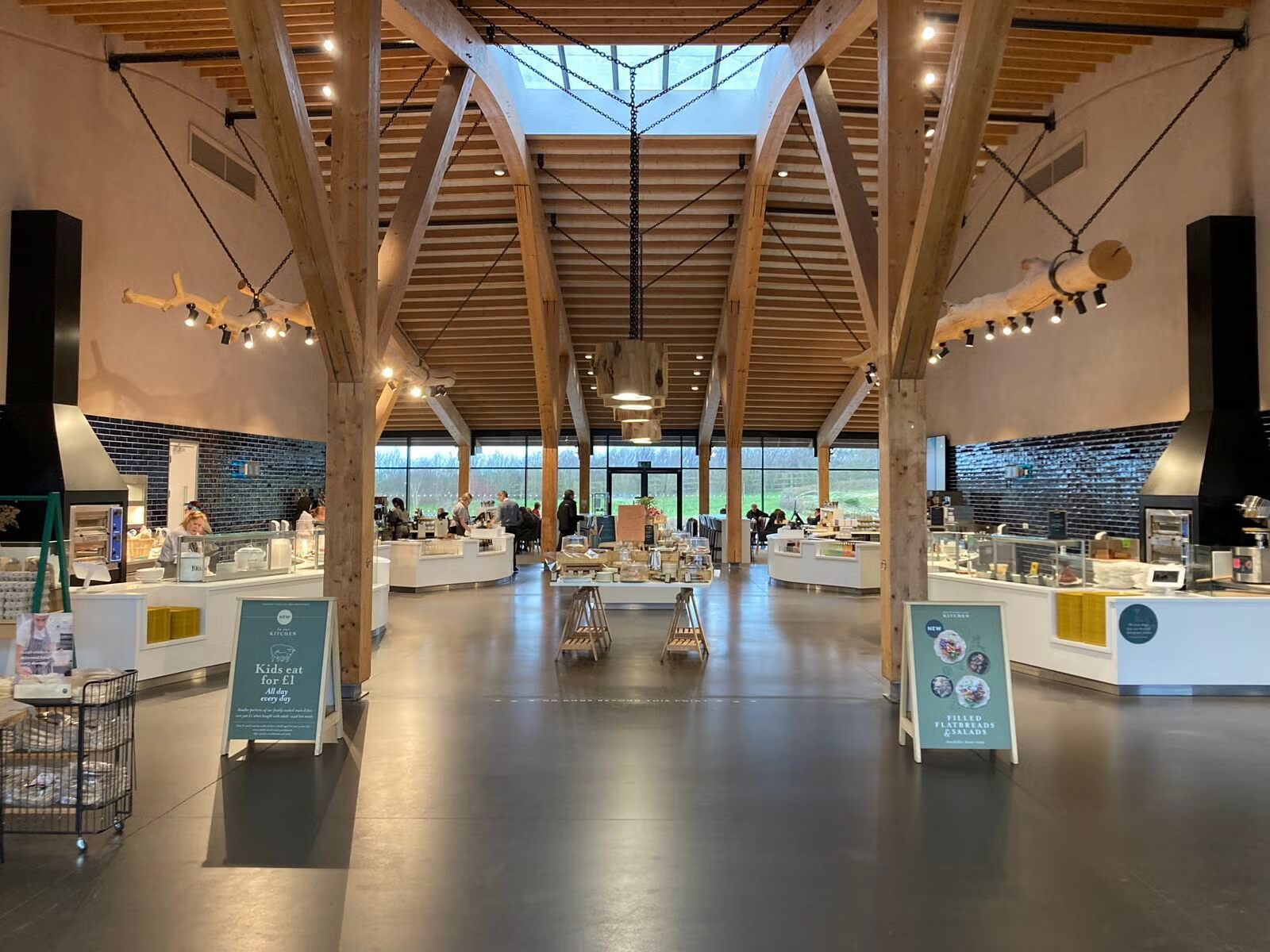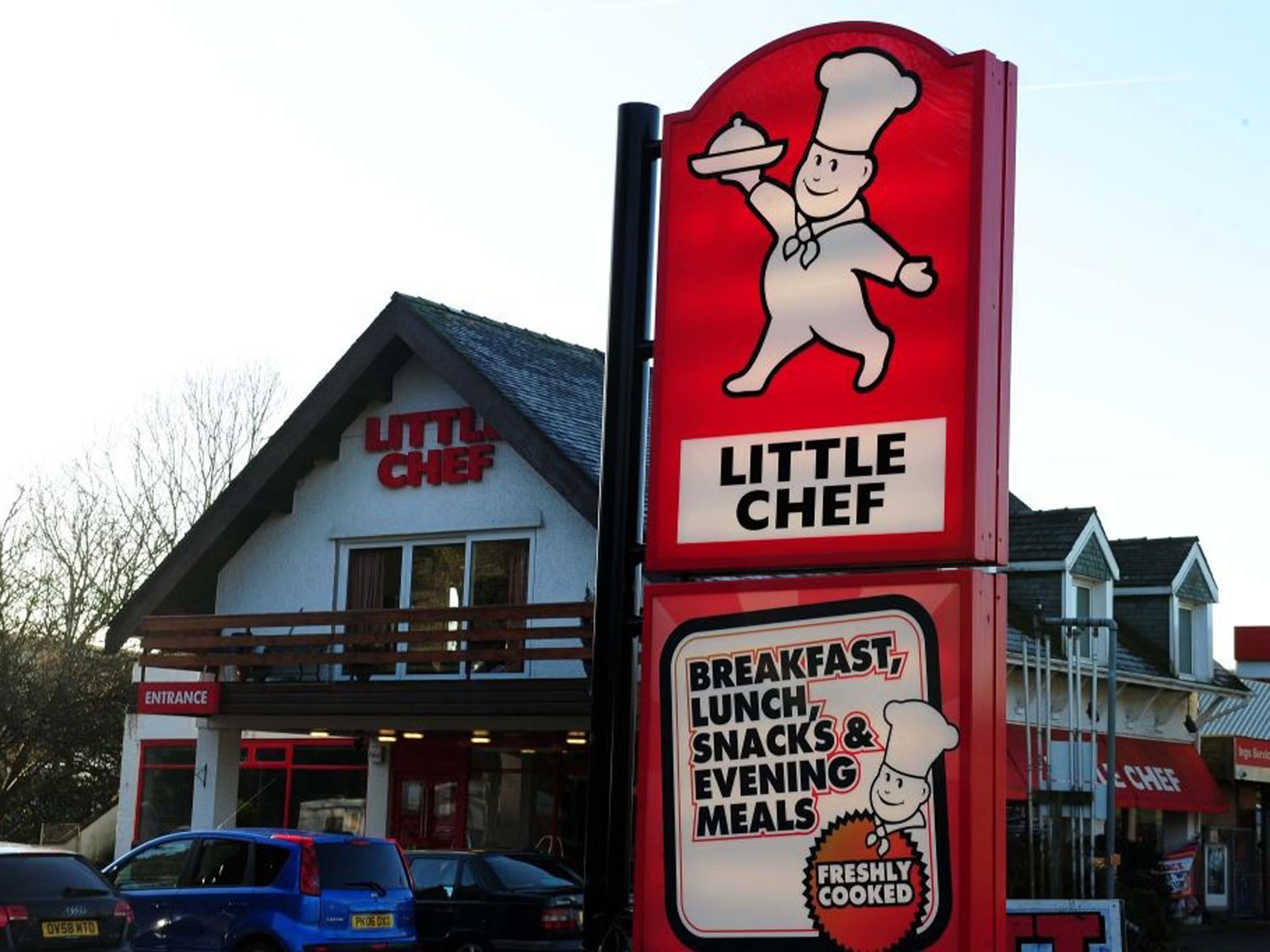Your support helps us to tell the story
Support NowOur mission is to deliver unbiased, fact-based reporting that holds power to account and exposes the truth.
Whether $5 or $50, every contribution counts.
Support us to deliver journalism without an agenda.

Louise Thomas
Editor
The words ‘I don’t think we’ll need to stop on the way’ make my heart sink. It’s one of the first things, as a passenger, I ask about ahead of a journey.” Mattie, 38, is a self-proclaimed motorway services superfan. His favourite is “without a doubt” Cobham on the M25, which he claims is the perfect size: “It’s not too big (you don’t want it to feel like a Westfield) but also it’s not too small (the tiny ones are the worst – barely any choice). It has everything from a Pizza Express to Greggs, a Nandos, a McDonald’s, a Leon and even a Wetherspoons!”
The weird and wonderful world of motorway services is ripe for frivolous patter in offices and pub gardens. But while many of us remain dubious over the state of our roadside offerings, there are some who can’t get enough of them. Take Rich, 26, known as the “Service Station King” – a delivery driver who contributes to the website Motorway Services Online. Undoubtedly Britain’s biggest pit-stop enthusiast, he visits sites across England, Scotland and Wales and posts any updates on the website and his Instagram. “I used to travel with my father who’s a truck driver as a young lad and we pulled into services for regular scheduled breaks; I got a fascination from there,” Rich tells me.
Rich traces his love for roadside facilities back to a particular diner chain, once something of a motorway juggernaut. “Little Chef was a brand that created fond memories, getting that lollypop at the end of your meal,” he reminisces. Little Chef sadly died as a brand in 2018, when it was sold to Euro Garages, which converted its restaurant buildings into brands such as Starbucks and Greggs.
Not many of us can claim to visit service stations purely for fun, but for a superfan like Mattie, “any journey that is set to last at least two hours has to involve a stop in a motorway service station”, He speaks animatedly about his fondness for Cobham: “It’s light and airy, it feels exciting – you get a rush of blood when you walk in and see the vast array of options. Plus, the outside area is impressive, with its own water feature!” he exclaims. “There is always a big sense of mystery too – you never really know where you are in the country.”
The ordinariness of Britain’s services are jokily referenced in popular culture – the M4’s Leigh Delamere acts as a pit stop from Essex to Barry in sitcom Gavin and Stacey, and characters debate which motorway services reigns supreme at the pub.
They can even act as springboards for, of all things, flirty repartee on dating apps. “When I was on Hinge, I made my whole profile about motorway service stations just because I thought it was really funny, but it led to some interesting chats with people,” Immy, 25, admits. Her profile included “prompts” such as “Let’s debate this topic: which is the best motorway service station” and “Pick our first getaway: Leigh Delamere/Gloucester/South Mimms”, and responses ranged from “I think it’s just more of a fact that Gloucester wins” to “I’m not lying when I say I would die for Gordano services”.
But what is it about service stations that, for better or worse, get motorists so revved up? “Nostalgia is very much a part of British culture and social media is a big part of that,” Rich tells me. It’s also our tendency to moan. “As Brits we feel like we’re being conned and robbed all the time,” he continues. “Walk into a service station and that’s exactly the feeling you get – everything’s got a 20 per cent mark up on it because you’re a captive market and they can charge those prices.”

When motorway services first opened in 1959, they were emblems of progress – Britain’s oldest station, Watford Gap, acted as stopovers for bands such as The Beatles and The Rolling Stones. And although most of our services no longer fit the image of sparkling modernity, the past decade has seen an uptick in “luxury” offerings along Britain’s road network. Gloucester Services on the M5 eschews fast food and coin-operated massage machines for a farm shop and sit-down restaurant serving locally sourced fare. It has gathered a cult following since opening in 2012, this year claiming the title of the best UK services in a yearly survey by Which?.
Chris, 36, went viral with a false story in 2020 that he loved it so much he had his honeymoon there (he and his wife actually went to Thailand): “Even though it’s only 40 minutes away from my home in Bristol, I can’t resist stopping off there as much as possible,” he tells me. “I love the variety of food on offer. If it’s a quick stop off – I’ll grab a coffee and a muffin. If I have time to stay longer, I grab the mac and cheese with a serving of salad, and I’ll sit out back enjoying the tranquil lake and serene surroundings.”
Mattie, service station superfanI am wary of the rise of these so-called ‘trendy’ services that have farm shops and sell organic thing
Gloucester is run by Westmorland, a family business that also founded Tebay, a similarly posh services set on a working farm between the Lake District and Yorkshire Dales. For Alice, 32, a stopover at Tebay has become a ritual part of her family’s drive to Scotland. “We’ve been visiting Tebay ever since I can remember, normally twice or three times a year. Going back there feels like escapism from fast-moving city life – like stepping into a different world of luxury gifts, homemade cakes and rural bliss.”
The Cumbrian service’s farm shop, which works with more than 70 producers within a 30-mile radius, is the biggest allure for Alice: “Last time, we came away with a bounty of goodies including venison sausages, fruit-packed compotes, Lake District honey, sourdough from a Kendal bakery and a couple of Cartmel sticky toffee puddings. Yes, they are all on the pricey side, but it’s easy to get carried away when everything is presented so nicely.”

Tebay’s “nose to tail” butchery and Gloucester’s gelato counter are big draws for their admirers, though Mattie argues they don’t resemble a typical experience on Britain’s motorways. “I am wary of the rise of these so-called ‘trendy’ services that have farm shops and sell organic things,” he confesses. “They’re not service stations in my view, not in the traditional sense. They are very expensive and too snobby for me. If I want to go to a farmers’ market, I’ll go to one.”
For Mattie, the appeal of a trip to a service station is that it conjures up precious memories of his youth. “When I was in my teens, I would get the National Express to London a few times a year with my late Nana Joyce, and the coach would stop at one on the way,” he says. “I was always so excited. My hometown didn’t have a KFC back then, so it was a novelty. I was always amazed by the bridge that connected the two sides of the service and longed one day to cross it. The coach only stopped for 30 minutes, and I never had the nerve to chance it.”
Francesca, 45, believes Brits get a raw deal when it comes to the quality of food offerings. Her family’s love of Italy’s Autogrill stations reached new heights this year on their road trip: “It’s not an exaggeration to say my 15-year-old daughter is obsessed,” she admits. “You can have three-course meals, amazing pastries, pizza, things like suppli [fried rice balls] and sandwiches that contain DOP/PDO certified products. The coffee is top-class, and you can also stock up on artisan products, cheese, charcuterie and wine that you’d expect to see only in a specialist deli.”

Immy paints a slightly different picture of Britain’s roadside facilities. “When they’re good they’re great, when they’re bad they’re awful,” she says. But whether upmarket or unsanitary, motorway services are tied to British culture and are landmarks in their own right, “alongside red phone boxes, open-top buses and large gatherings of seagulls”, jokes Chris. It’s the experience of walking into one that Mattie finds endearing. “They have a certain smell – a sort of toilet smell with notes of coffee, fast food and sweat from tired and hot travellers. If you could bottle the smell, I’d buy it!” he quips.
Aside from their iconic blandness, motorway services act as liminal spaces for a cross-section of society – the anonymity and lack of social norms liberating drivers from the drudgery of the motorway. “There is no judgement in a service station – you see all forms of life,” Mattie says. “Girls in rollers, women in wedding outfits, truckers – everything. And calories don’t count either: you can eat fast food at 3pm for no reason and it doesn’t matter. They are a utopia.”
Disclaimer: The copyright of this article belongs to the original author. Reposting this article is solely for the purpose of information dissemination and does not constitute any investment advice. If there is any infringement, please contact us immediately. We will make corrections or deletions as necessary. Thank you.



